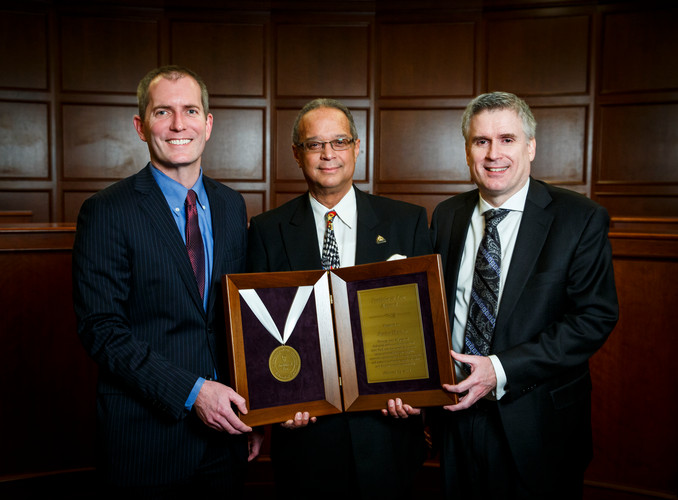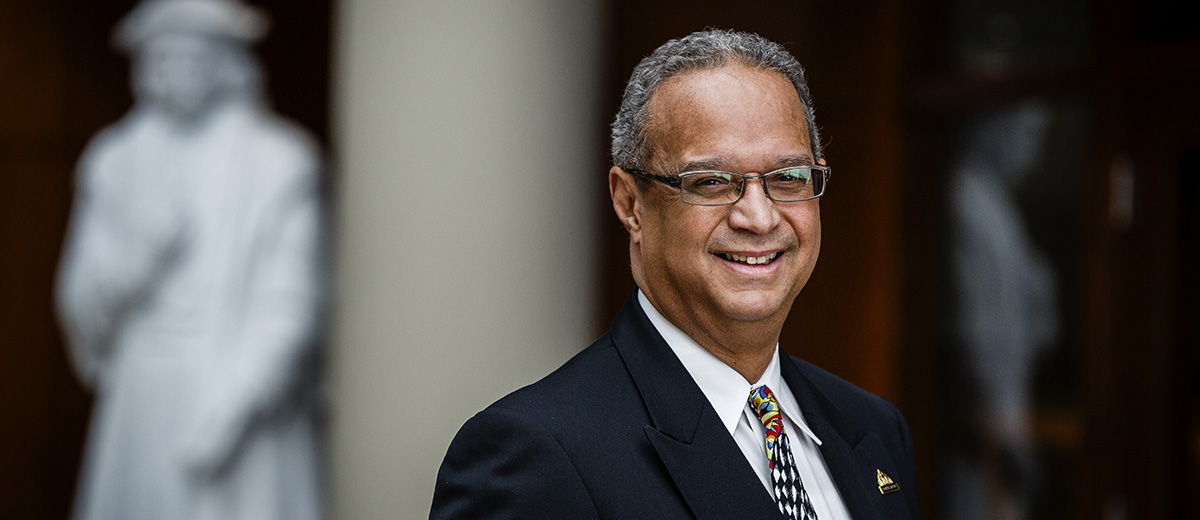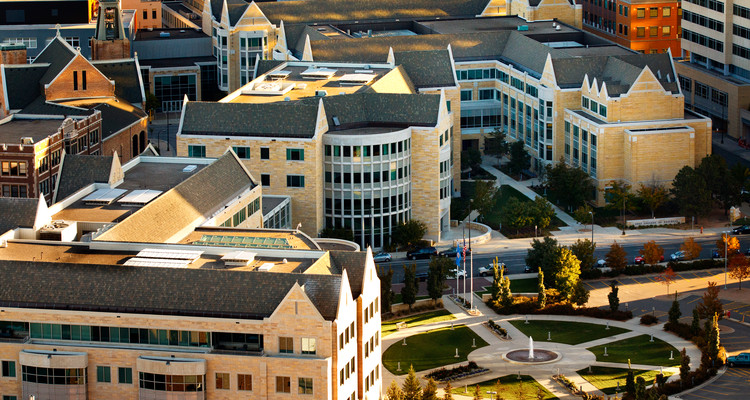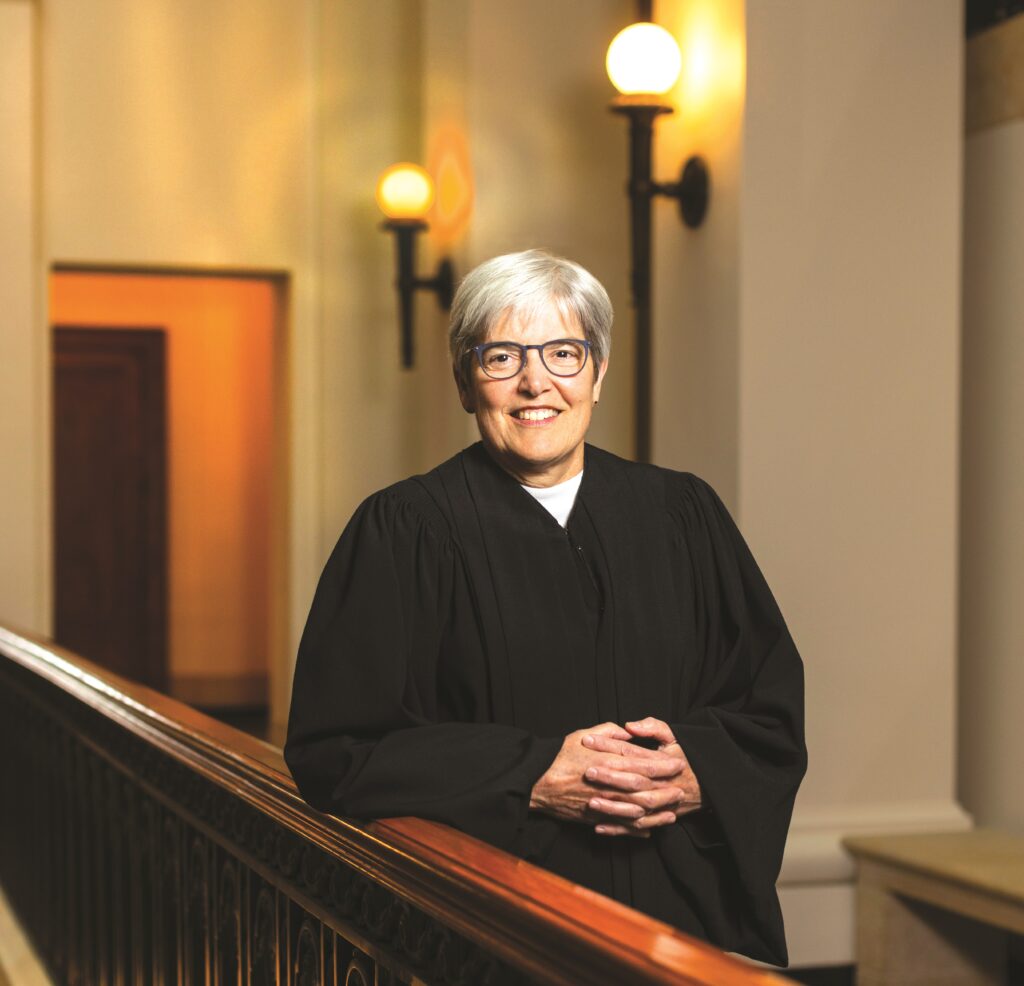I was raised in the Old Rondo community of inner-city St. Paul, which is now known as the Summit-University district. Rondo was a diverse and thriving community made up of small businesses, social clubs, people of color and many others. I think of Rondo as the “village” it took to raise me as a child. A neighborhood of pride and hard work, where many residents owned the businesses that provided services to their own neighbors. The adults shared responsibility for, and pride in, the young people there. The values of Rondo’s families were rooted in education above everything else.
After college, I knew I wanted to give back to that same community – the village of my peers. Helping others and protecting their rights continued to be a part of each career move. I worked to get kids into summer jobs, to train unemployed people for work and self-sufficiency, to give economic opportunity to small and minority businesses, and to help the community understand the events and circumstances of our lives as we changed and grew over the years.
Reflecting back on that time has led me to question whether my peers and I did enough to instill values in the young people of our village as it exists today. Did we ensure a meaningful early childhood, K-12 educational agenda for youth of color in Minnesota? Did we seek to ensure that our children would benefit from the struggles that the greatest generation lived through? I fear we did not do enough, and we continue to live with the impact of that complacency in the 21st century.
The Twin Cities – and indeed the state of Minnesota – are doing poorly when it comes to equity for people of color. In fact, the Twin Cities metropolitan area is the worst municipality in the nation when it comes to parity in family income, according to the recent National Urban League Report on Black America. Fifty years after the passage of the Civil Rights Act of 1964, we have civil rights. But in the 21st century, shouldn’t economic rights exist as well?
There are solutions that have worked in the past, yet we fail to sustain them in public policy. Youth employment programs help kids learn about the world of work and contribute to their family, keeping them positively occupied, especially in the summer months. Unemployment insurance works as a means to breech periods of layoff for adults. In a rapidly shifting workplace, re-training interventions help to re-skill workers. In periods of high unemployment, one of the best interventions of the 1975-85 era was Public Service Employment (PSE), which subsidized jobs for thousands of Minnesotans employed at a wage level sufficient to support their families and to serve the interests of their communities. Most of these approaches to address social ills have been abandoned. It would do well to embrace and fund these policies again.
There is another tool that must be utilized in the struggle for economic equity and regional economic sustainability: minority-owned business enterprises (MBEs).
Over recent years, I have worked hard to achieve progress in three areas to assist MBEs: improving access to capital and contracts; working with educational leadership to improve minority and immigrant graduation rates; and helping to create mentoring relationships with the business community. Minority-owned businesses hire people from the community, expand the tax base and make local economies healthier. They provide a mechanism to create ladders for social and economic mobility and break down barriers to success in the minority communities of Minnesota. These entrepreneurs inspire others as role models and mentors.
As I was coming up, it took a village to raise a child and prepare him or her for a successful adulthood. Well, it also takes a village to nurture economic growth for the minority-owned business community. I believe MBE assistance programs are an important part of building that village, and to help build equitable economic rights and opportunities in the state of Minnesota.
For more information about MBEs in Minnesota and the nation, visit https://ethniccapital.com.
Readus Fletcher Receives Iustitia et Lex Award
 Readus Fletcher, deputy director of the St. Paul Department of Human Rights and Equal Economic Opportunity, received the School of Law’s Iustitia et Lex award for embodying the School of Law’s mission in his professional life. Fletcher, whose career has focused on addressing the economic and educational disparities that affect people of color and low-income Minnesotans, was nominated by Tim Flynn ’11, Minnesota Department of Human Rights assistant commissioner.
Readus Fletcher, deputy director of the St. Paul Department of Human Rights and Equal Economic Opportunity, received the School of Law’s Iustitia et Lex award for embodying the School of Law’s mission in his professional life. Fletcher, whose career has focused on addressing the economic and educational disparities that affect people of color and low-income Minnesotans, was nominated by Tim Flynn ’11, Minnesota Department of Human Rights assistant commissioner.
Fletcher’s community involvement is substantial. He is a member of Everybody In; a member of MnSCU’s Community Action Diversity Council and the St. Paul College Advisory Council; vice president and member of the Board of Directors of the Midwest Minority Suppliers Development Council; member of the U.S. Conference of Mayors’ Workforce Development Council; founding member of OneMN.org, a collaborative of the African, Latino, Asian and Native American communities; and a member of the African American Leadership Forum and the African American Leadership Council.
Though Fletcher does not have a background in law, School of Law Dean Robert Vischer recognized Fletcher’s social justice work, emphasizing that the School of Law “tackles the most pressing issues facing law and social justice, and we can only do that as a community.
“For lawyers, impact is in the details,” Vischer said at the event. “Readus has always kept his eyes on the big picture, without missing the details. Though he’s not a lawyer, I cannot think of a better model for future generations of St. Thomas lawyers.”
Read more from St. Thomas Lawyer.







